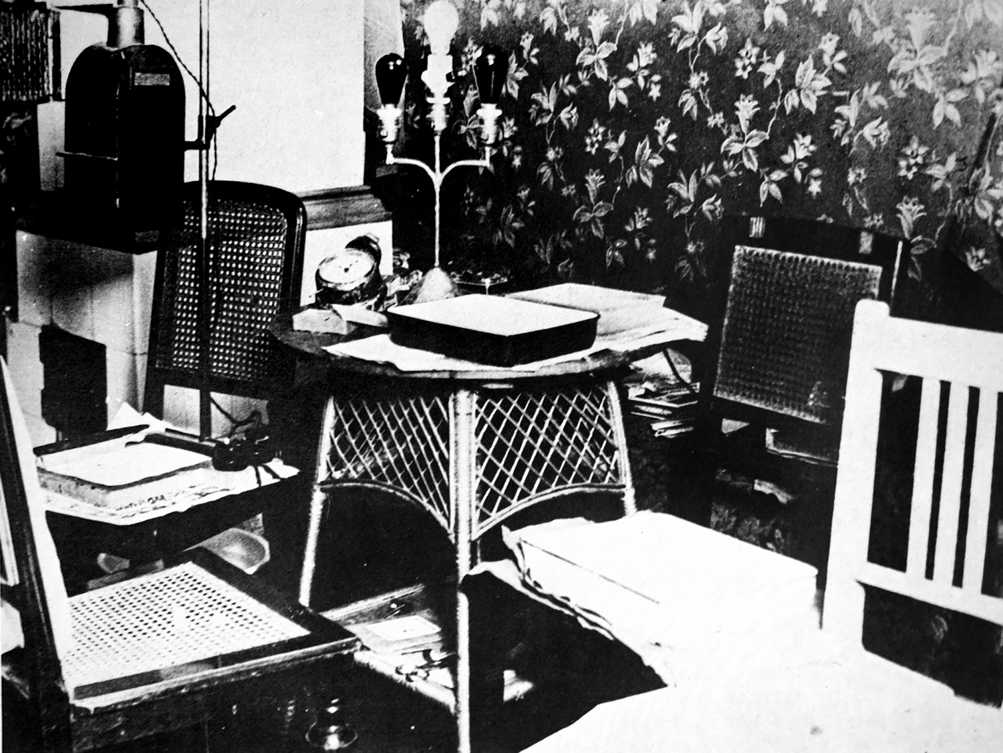2018-2019 COOP study group: Making Nothing Out of Something: Improvising writing and publishing in relation to practices of resistance. Tutor Team: Jorinde Seijdel, Florian Göttke, Werker Collective (Rogier Delfos & Marc Roig Blesa). Partner: Open!
Student participants:
Dorothy Hunter, Flavia Palladino, Nine Postma, Sara Benaglia, Saskia Burggraaf, Wilf Speller.
Tutor team:
Artist: Werker Collective
Curator: Jorinde Seijdel for Open!
Scholar: Florian Göttke
Making Nothing Out of Something: Improvising, writing and publishing in relation to practices of resistance from Month to Month & Chronicles
DAI Week 10 (AKA Extension Days): November 15 – 16 (1 day), Arnhem | April 18 – 20, (2 days), Epen to Arnhem | June 23 – 24 (1 day prior to DAI WEEK), Cagliari.
Making Nothing Out of Something: Improvising, writing and publishing in relation to practices of resistance
This study group and publishing class takes 'improvisation' as the substantive starting point for making and thinking. That is to say, improvisation is both form and content for a series of gatherings, conversations, seminars, workshops, reading groups, lecture-performances, publications and other activities and events. The participants reflect about and embody improvisation as generative and relational, and actively work with it as a catalyst for artistic and social experiment and practice, specifically experimental writing and publishing.
Examining improvisation in relation to power and aesthetics in particular, the research focuses on the improvisational nature of struggle, protest movements and activism. (See f.e. Tracey Nichols, An Ethics of Improvisation. Aesthetic Possibilities for a Political Future, Lexington Books, 2012). Inspired by poet, scholar and free music lover Fred Moten’s thinking – who in his recent book The Universal Machine (Duke University Press, 2018) calls improvisation ‘a movement; a dehiscence; a quickening’ – we look at improvisation as both ‘a response to a necessity, the necessity to act in favor of freedom’ and as ‘making nothing out of something’. In line with this – and also in line with the framework of Open! and the expertises of the tutors (see bio’s below) – the study group’s making activities especially relate to self-organization and anarchist and activist publishing as it is expressed in historical and current protest movements.
There is another reason to problematize improvisation: DAI Roaming Academy itself is by its nature not offering any fixed structure. It is partly an improvised space, taking place every month in new circumstances and at different locations. It offers little hold and no opportunity to settle down. This study group has set itself the goal of not wanting to fight against these unstable conditions, but to take them as a very real additional framework for learning, making, thinking, teaching and being together. By appealing to our improvisational skills, we embrace DAI as a ‘wild space’ - following the concept of wildness as proposed by Jack Halberstam and Tavia Nyong’o in Wildness (Duke University Press, 2018) – a space for what lies behind current systems and structures of rule and regulation. In this wild space the participants look for critical and speculative vocabularies, creating their own structures and trying to play freely, but in close interaction with the material circumstances and discursive checkpoints.
Assignments/collaborative work
* Start-up lexicon assignment: In order to break open and map the subject-matter, each participant composes several text-image entries to be digitally published on Open! as a collaborative textual and visual work. (It might also become an integrated part of the main assignment described in the following paragraph.) The lexicon is a recurring element in the courses of Open!. For last years Topologies of Touch Lexicon see: http://www.onlineopen.org/topologies-of-touch-lexicon
* Werker Magazine develops in close collaboration with the co-tutors and the students a self-publishing station that is both a concrete material device as a space, a wild space, for creating and sharing works and subjectivities as forms for self-governance that allow freedom. (N.B. it is not in the first place about self-publishing in the social media!) This device or ‘ecology of printing’ will be the product of improvisation and collaborative design, as well as a tool and a site for self-publishing and self-organizing. The project will be partly developed in Arnhem (Printworkshop ArtEZ) in November and April, and for the other part in Cagliari in January and June. Without excluding overlaps and reversals, in Cagliari it wants to relate to local histories/narratives and to the city’s current urban and activist spaces, while in Arnhem it will improvise with and test materials, ideas and proposals.
* During the year, the other activities will support this assignment and its key questions by doing research, writing, reading texts, having tutorials and seminars, documenting, presenting and performing in different ways, with ‘improvising’ as a recurring element. In this way the publishing device is fed with content.
* In Cagliari in June the self-publishing station and its spin-off will be the form and the content of the study group’s public presentation. The presentation attempts to establish a link with local contexts.
We are looking for participants who are interested in improvisation as a driving force and want to explore and create the aforementioned wild spaces from a sense of urgency, and to develop writing and publishing as independent forms or tools for expression. We find it important that our participants want to work independently and are open to different forms of cooperation. From our participants we expect an open, generous and respectful attitude towards each other and the tutors - also participants. A study group can only be a wild space if everyone feels equal and safe.

